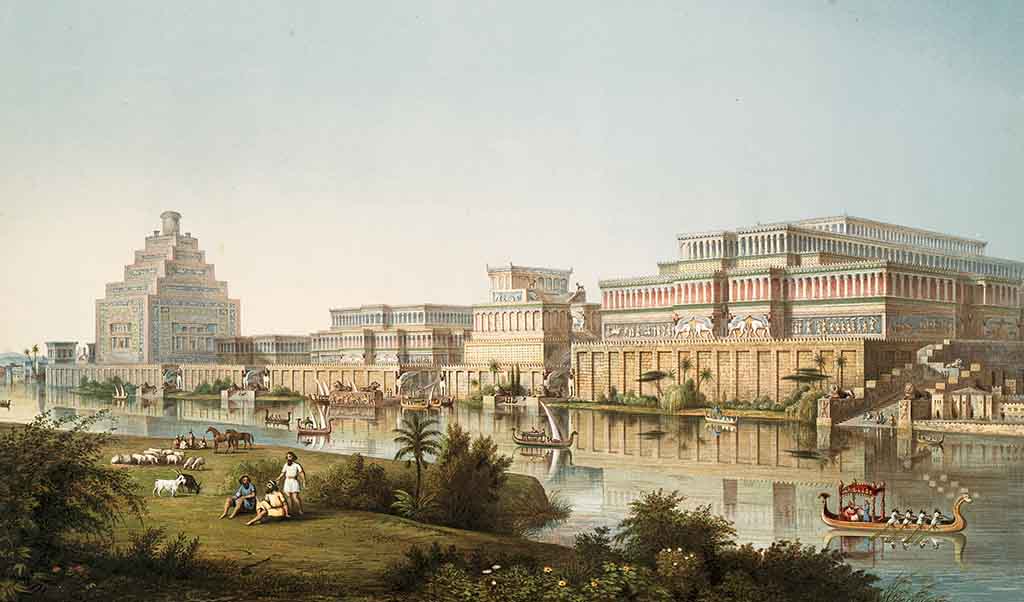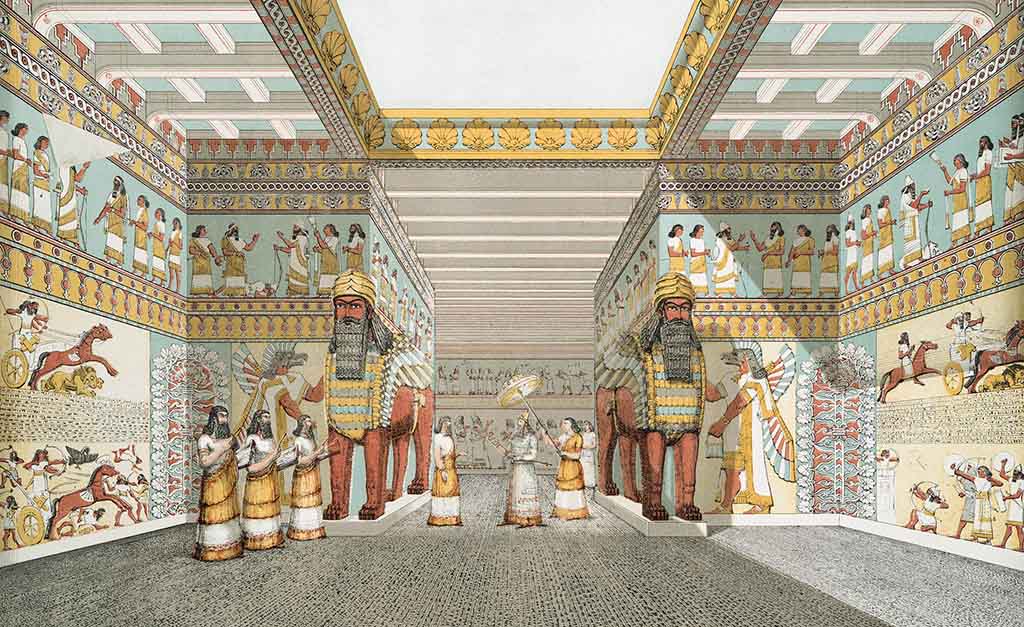The Assyrian Empire
135 Years
Carousel of images for this Bible Exhibit
Listen to this Bible Exhibit
Assyria was a powerful and brutal empire that dominated much of the ancient Near East in its third phase, known as the Neo-Assyrian period (740–612 BC). Originally, Assyria was a small district in northern Mesopotamia. It received its name from the tiny city-state Ashur, or Asshur, on the western bank of the Tigris River. The city was the place of worship of the sun god with the same name, Ashur or Asshur.
When Tiglath-Pileser III, who reigned from 745 BC to 727 BC, seized power from his weak brother, he restored royal power and established a standing army. For 19 years, he conquered provinces and created vassal states, instituting a foreign policy of deporting and mixing captured peoples to prevent any one group from rising. Sometimes known by his Babylonian name Pul, Tiglath-Pileser III’s creation of the Neo-Assyrian Empire initiated the demise and eventual fall of the Northern Kingdom of Israel 2 Kings 15:17-20, 2 Kings 15:29-30, 2 Kings 16:5-10, 1 Chronicles 5:24-26, 2 Chronicles 28:16-22.
The next Assyrian king, Shalmaneser V, conquered the northern kingdom of Israel in 722 BC and exiled many of its inhabitants 2 Kings 17:1-6, 2 Kings 18:9-12. Sargon II succeeded Shalmaneser V as king in 721 BC and continued the Assyrian Empire’s expansion Isaiah 20:1-6. He founded a new capital city, Dur-Sharrukin, and commissioned the construction of several impressive buildings and monuments.
The next Assyrian king, Sennacherib, attacked the kingdom of Judah and laid siege to Jerusalem in 701 BC. However, God miraculously intervened and saved the city from destruction with help from the prophet Isaiah 2 Kings 18:13-18, 2 Kings 19:8-37, 2 Chronicles 32:1-23, Isaiah 36:1-22, Isaiah 37:1-38.
The subsequent Assyrian kings, Esarhaddon and Ashurbanipal, are referenced in Scripture but already reflect a weakened Assyrian Empire Ezra 4:1-16. The empire’s primary capital city of Nineveh, visited by the prophets Jonah and Nahum, was eventually sacked and destroyed in 612 BC. Despite the empire’s power and influence, its brutality and oppression of conquered peoples eventually led to its downfall to a coalition of Babylonians, Medes, and Scythians by 609 BC. The Assyrian Empire had ruled over the Northern Kingdom of Israel for 135 years.









